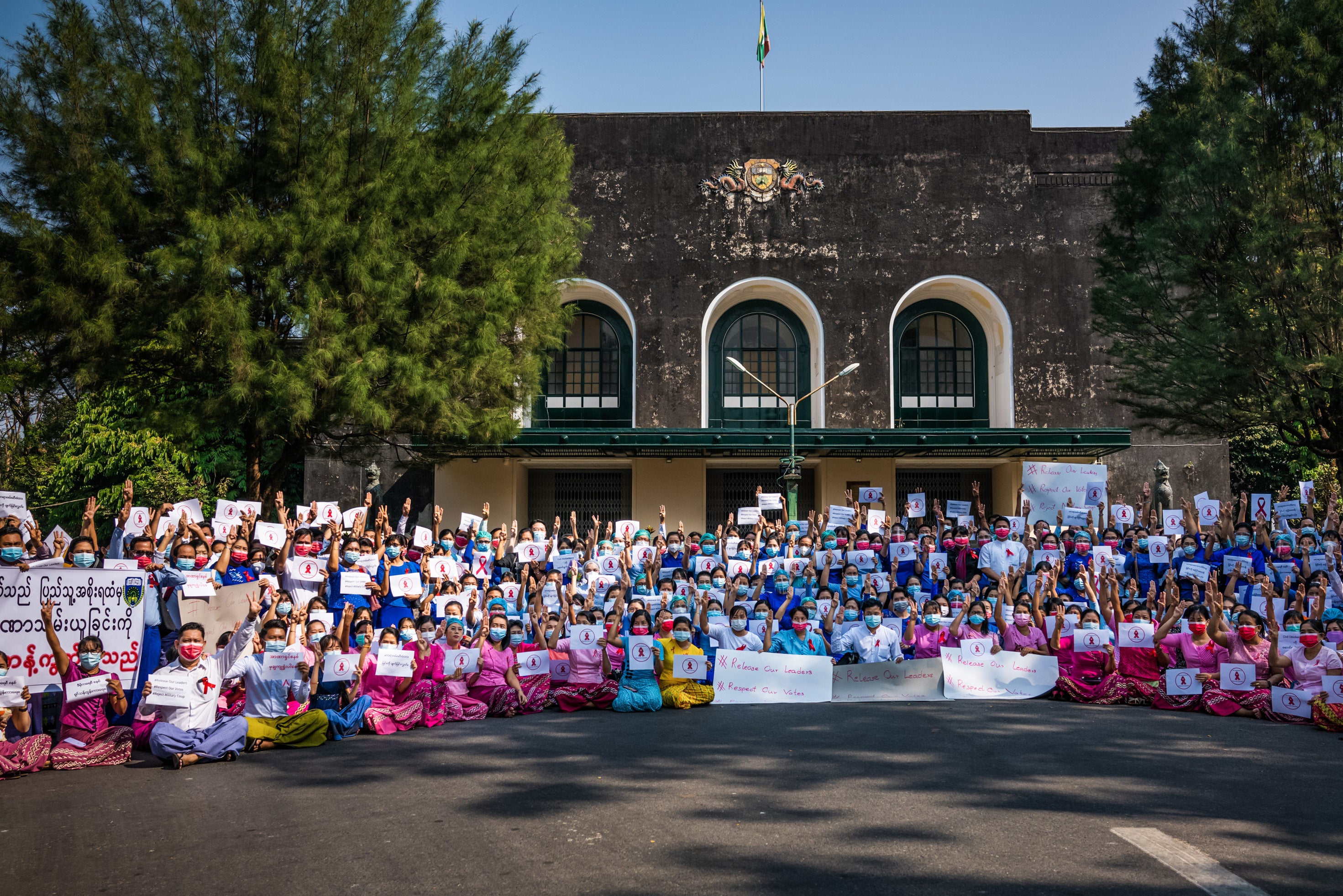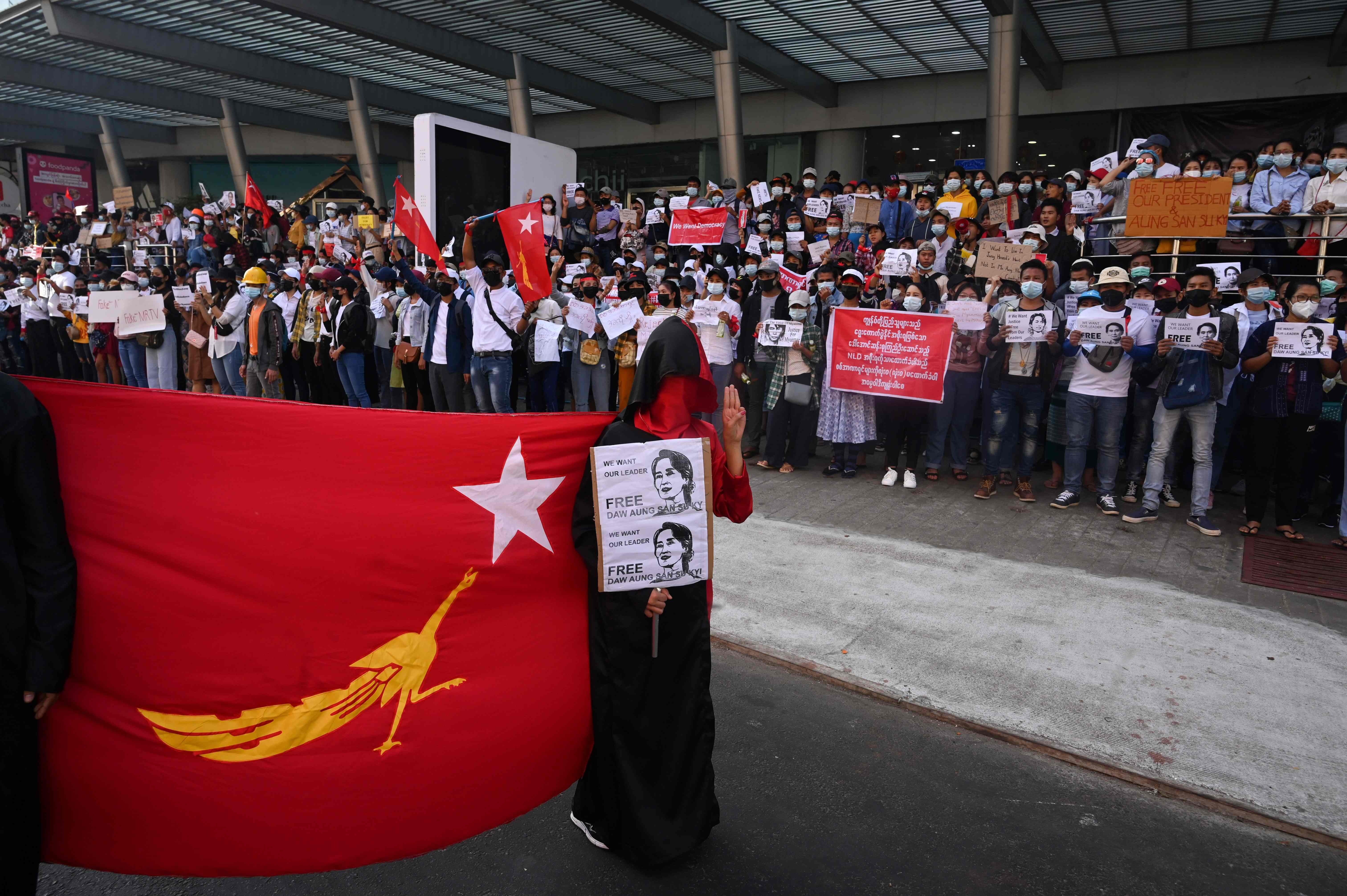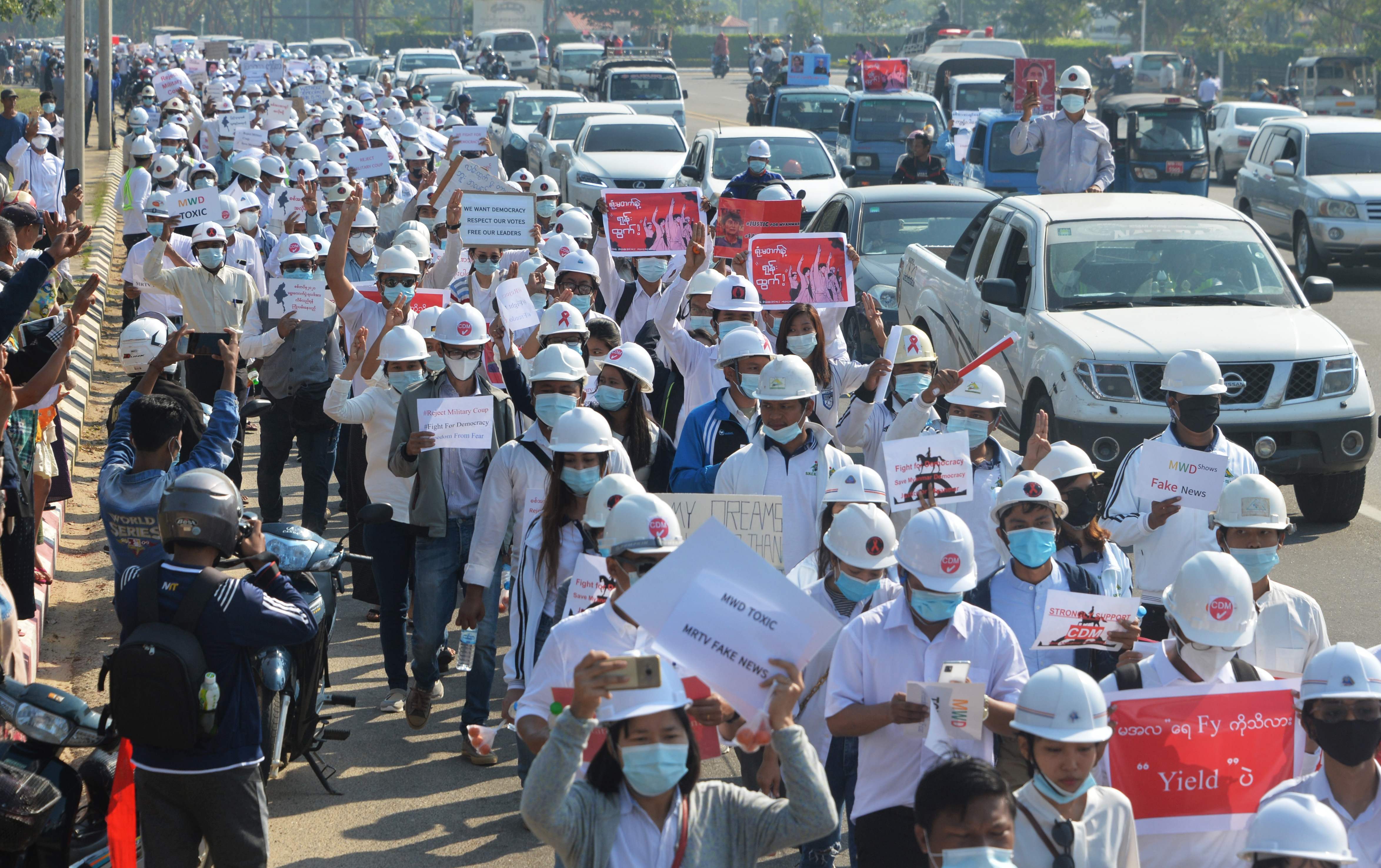A study in revolt: Myanmar coup puts Yangon University students on frontline of protest again
In 1962 and 1988, students fought against military rule in Myanmar. In 2021, they are doing so again, reports Rory Sullivan


The University of Yangon has long been at the centre of protests against military dictatorship in Myanmar, and things are no different after this month’s coup.
When the military - or Tatmadaw - seized power in 1962, students at what was then Rangoon University organised a series of demonstrations against the junta’s policies. In what would become a grimly familiar pattern, these were violently suppressed by the new ruler General Ne Win, who had studied, but failed to get a degree, at the institution.
It is the university’s involvement in the events of 1988 though that are most keenly seared into the nation’s consciousness.
That year, its students played a large role in an uprising against the military, which was quashed - to deadly effect - by the authorities.
The regime finally had enough of the student body’s activism after further rallies in 1996, resulting in an almost 20-year ban on undergraduates studying at the university.
This policy was only rescinded in 2013, two years after the lifting of full military rule and two years before Aung San Suu Kyi’s National League for Democracy (NLD) party won a major victory in the 2015 national election.
Current students are now continuing the legacy started by their predecessors. They oppose the army’s power grab on 1 February, and call for the release of state counsellor Ms Suu Kyi and other NLD officials who have been detained.
Like their peers at other universities across Myanmar, they first took to social media to express their outrage and then - from Saturday - spilled out into the streets for daily demonstrations.
Over the past week, The Independent has heard from a number of them, who agreed to talk on the condition of anonymity.
Of different ages and courses, they all spoke about having their lives put on hold, the bleak prospect of yet more military rule and their refusal to be silenced, despite obstacles like internet blackouts.
Talking of her future, Hla Hla* says: “Waking up on the morning of 1 February, everything was shattered.”
“My friends and I have very high hopes, high dreams. But even getting my bachelor’s degree right now is very uncertain,” she adds.

This is because she and most of her contemporaries at the University of Yangon are taking part in the civil disobedience movement, which was first organised by a group of doctors in an attempt to pressurise the military to step aside.
As part of the campaign, many healthcare professionals and civil servants are refusing to work until democracy is restored, while large numbers of students have vowed not to return to their studies when universities reopen soon.
Teachers at the University of Yangon are also involved, with more than half of the institution’s faculties declaring their staff will not teach under the military regime.
“Our university has a very prestigious history condemning the military,” Hla Hla says, discussing the recent protests. “We need to prove that we are capable, that we are the students of this kind of university,” she adds.
Hla Hla readily admits the pressure that comes with this sense of responsibility. Another student, Khin Khin*, is of the same mind. “I feel like I must have the will of previous generations who attended the university. We want to continue the legacy of the fallen students,” she says in reference to those who died in 1988.
Every generation of Myanmar students feels an obligation to oppose military rule
Khin Khin was told about the 1988 uprising - which took place well before she was born - when she was 13 years-old. “My family said protesters were slaughtered, and that we’re lucky to have been born in our generation,” she says.
Sadly for her generation, many feel history is now repeating itself, following the police’s use of water cannons, rubber bullets and reportedly live ammunition against demonstrators. As a result of this crackdown, a 19-year-old woman is now fighting for her life after being shot in the head in the capital Naypyidaw during a protest this week.
The threat of violence has been there since the first day of rallies on Saturday. Students say the authorities painted three lines on the road near the University of Yangon, telling students and other protestors that if they crossed the third line during their march they would be shot.
Nicholas Farrelly, a Myanmar specialist at the University of Tasmania, tells The Independent: “Every generation of Myanmar students feels an obligation to oppose military rule.”
He says that students and graduates from the University of Yangon, which he describes as the country’s premier institution for arts and sciences, are “bravely defying the military’s ban on public gatherings”.
“Given the history of military crackdowns, they are well aware of the risks involved, and recent days show the military’s willingness to use violence against protestors,” he adds.

Hla Hla says her parents and grandparents repeatedly warn her about the dangers of opposing the military, citing what happened in 1988. So do Khin Khin’s.
However, they and their friends have seen the country open up over the last decade and are loath to give up its hard-won freedoms. Hla Hla thinks the military stole her childhood but she will resist the same happening to her adult life.
On the subject of recent educational improvements in Myanmar, Farrelly says: “The coup has stopped all of these positive changes and many people are heartbroken.
“We all fear that if the military wants to stay in charge, many young Myanmar people will, like previous generations, have no choice but to seek sanctuary and opportunity abroad."
Zaw Zaw*, another student at the university, now fears his dream of becoming a charity worker or civil servant in Myanmar is unobtainable. “The military said the emergency situation will last for a year but we citizens know that’s not true,” he says.
General Min Aung Hlaing, who had been due to retire from the army in July, is now in charge and has made televised appearances claiming the military takeover is in the best interests of people.
With Trumpian rhetoric, he justifies the army’s actions by saying that November’s election, which produced a landslide victory for the NLD, was fraudulent, a claim refuted by independent observers.
Although the constitution already granted the army an effective veto over any government legislation, the Tatmadaw felt chastised by the resounding defeat of its proxy, the Union Solidarity and Development Party (USDP), which only secured 7 per cent of the vote, compared with the NLD’s 83 per cent.
Then the coup overturned the will of the people. Hla Hla expresses this painful new reality by saying the leading general is now “the judge, jury and executioner in one”.
In the face of another military dictatorship, tens of thousands of people, including Rohingya, the Muslim ethnic minority brutally persecuted by the army, have marched in support of democracy.
Back in Yangon, students from the university oscillate between hope and despair. For now at least, the first emotion is the stronger of the two. “I do think we have a chance and that’s all that matters. If nothing else, we can say we fought for it [democracy],” Hla Hla says.
This drive for freedom follows in the tradition of the university's most famous alumnus, Aung San, the father of Ms Suu Kyi, who helped win Myanmar its independence from the British.
Hla Hla is one of many University of Yangon students campaigning for a brighter future. “Every time we step out of the door to join the protests, there’s a possibility we’re going to get killed. Despite all these risks, we go out and protest. This explains how much we’re against this military dictatorship,” she says.
*Names have been changed to protect identities



Join our commenting forum
Join thought-provoking conversations, follow other Independent readers and see their replies
Comments